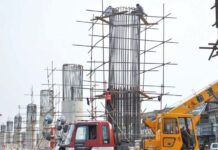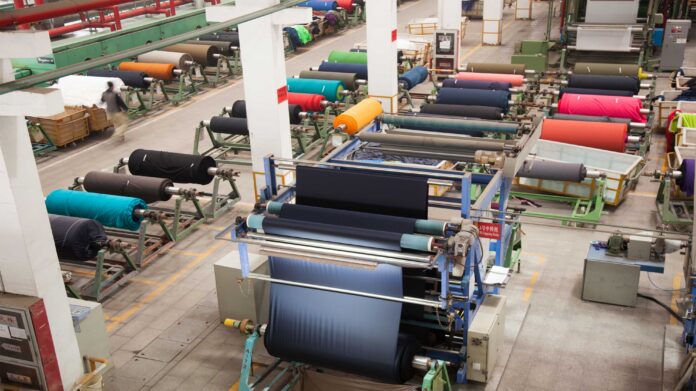The textile industry has presented an ambitious proposal to the government, outlining a comprehensive plan aimed at achieving a $50 billion export target.
The plan includes recommendations for overcoming barriers and providing incentives to enhance international market penetration.
The industry’s proposal encompasses the establishment of 1,000 garment plants on an expedited basis to generate exportable surplus and diversify the export basket. Each plant, equipped with 500 stitching machines and requiring a $5 million investment, is expected to yield $20 million in annual exports and create 1,000 jobs.
During a presentation to the Export Advisory Council for Textiles, the industry suggested a “no-cost-no-commitment” incentive package. This package features proposals such as offering free office spaces for international brands and retailers, encouraging their physical presence in Pakistan.
The initial six months’ costs are to be covered through upfront financing from the Export Development Fund, coupled with a 0.1 percent rebate for firms procuring merchandise exceeding $50 million from Pakistan.
The industry highlighted shifts in the US fashion industry’s strategy, transitioning from “China plus Vietnam plus many” to “Asia plus rest of the world.” Recognizing the changing landscape, Pakistani firms aim to capitalize on opportunities arising from the reevaluation of textile product sourcing.
As sustainability gains prominence, textile companies are expected to increase sourcing of clothing made from recycled or sustainable fibers. Challenges include high sourcing costs and low-profit margins.
The industry is calling for policy support, including preferential tariff rates and guidance on sustainability and recycling standards.
Addressing industry-specific concerns, the textile sector urged the government to announce a separate power tariff category for exporters, ensuring a competitive environment.
Calls were made for a steady supply of re-gasified liquefied natural gas (RLNG)/locally produced gas at regionally competitive prices and a transition to zero emissions for exporting industries to meet net-zero greenhouse gas emission targets.
The industry also sought exemptions from sales tax for export-sector inputs, expedited processing of FASTER refunds by the Federal Board of Revenue, and the creation of free commercial zones with simplified procedures.
Additionally, it emphasized the need for tax incentives and financing schemes to gain a competitive edge in the global market, focusing on diversifying textile and apparel exports beyond cotton-based products.

























Nice
I appreciate you sharing this useful information. It’s quite helpful for me.